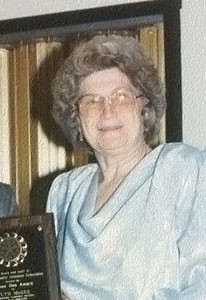Peg Smith
2022
Boulder, Colorado
Peg Smith was a founding Boulder Community Alliance member, which serves rural Boulder, Utah. With a background in technology, she created an online bulletin board for residents to share news and information, dubbed the “Pegboard.” Over time, Pegboard became Boulder’s primary system for public announcements, meeting notices and a communication network for residents to sell, trade or donate goods and services. During COVID, the community and local region relied on Pegboard as a COVID-19 information source. Pegboard kept people informed on local sources for masks, hand sanitizers and vaccination resources.
Smith also was the BCA newsletter, Sage Page, editor and co-founded Boulder’s Friends of the Library, a volunteer group that made the local library into a well-utilized community asset with an expanding books and publications collection. She writes a column covering Boulder for the Insider, a weekly newspaper that serves Boulder and all the communities in Garfield and Wayne counties.
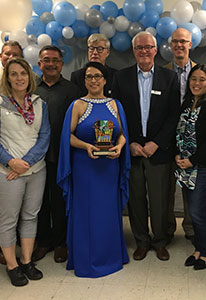 Isabel Solorio
Isabel Solorio
2018
Lenare, California
Isabel Solorio who resides in Lanare, Fresno County, is a dedicated leader with the all-volunteer organization Community United in Lanare (CUL). She helped co-found CUL in 2009 when the community was unable to pay for an arsenic treatment facility. CUL has since fought for clean drinking water, safe pedestrian walkways, improved transit service, access to public wastewater service and waste clean-up in the area. Solorio also worked to secure U.S. Department of Agriculture funds to provide a community food bank in Lanare, and she coordinates volunteers to distribute the food to the community several times per month. In addition, Solorio serves on the Fresno County Citizens Advisory Council. She was recently appointed to the Rural Communities Advisory Committee for the North Fork Kings Ground Water Sustainability Agency. Read Isabel Solorio’s profile here >>
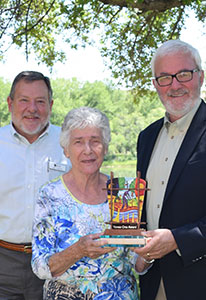 Francis Engellant
Francis Engellant
2016
Geraldine, Montana
Francis Engellant was selected for the award because of his lifelong, unfailing devotion to rural Montana. Among other volunteer activities, Engellant served on the Geraldine School Board for 12 years and was instrumental in constructing a new K-12 school. For more than 30 years, he worked tirelessly as a 4-H leader and supporter. He also served for many years as a board member on the Chouteau County Livestock Protective Association, which is critical to area ranchers in providing the only county-dedicated brand inspector. A WWII veteran who served in the Army Air Corps, Engellant was an active member of the Veterans of Foreign Wars and an American Legion supporter. He was also a founding and honorary member of the nonprofit Lippard-Clawiter Foundation, which secures and administers gifts or bequests to benefit Chouteau County residents. Engellant died on July 22, 2016, leaving the communities to whom he’d dedicated so much time to mourn one of their best. His wife Blanche accepted the award on his behalf. (Photo: Joe Herring, RCAC board president, Stanley Keasling, RCAC CEO and Blanche Engellant, Francis Engellant’s wife of 71 years, accepting the award on recipient’s behalf.)
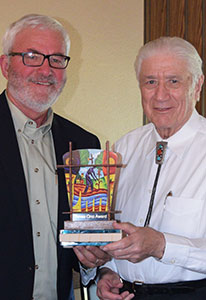 Don Pfau
Don Pfau
2016
Lewistown, Montana
Don Pfau has spent decades volunteering to improve the lives of thousands of central and northeastern Montana residents. He spearheaded large infrastructure projects, such as the five flood control dams in Spring Creek, where repeated flooding had threatened lives and livelihoods. He worked with U.S. Corps of Engineers and U.S. Fish and Wildlife Service officials to develop the Crooked Creek Recreation Area; and the Big Spring Creek Watershed Partnership, where he worked to create a trail system along Spring Creek and on Lewistown’s former rail bed.
Pfau has been an invaluable fundraiser and was instrumental in bringing numerous and varied projects to fruition, including a convention center, hospital, high school, fairground improvements and a satellite college campus. He continues to advise the Central Montana Foundation, which has assets exceeding $20 million and serves five rural counties. All of this volunteer work is remarkable as Pfau carried out much of it while he built a retail sporting goods business. (Photo: Stanley Keasling, RCAC CEO and Don Pfau, award recipient.)
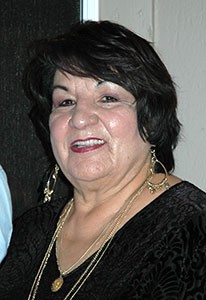 Anita LaRan
Anita LaRan
2014
Mora, New Mexico
RCAC recognized Anita LaRan for her many decades of dedication and volunteer work. Her leadership and hard work is seen throughout her community. LaRan’s efforts secured millions of dollars in funding and technical assistance for Mora County community water systems. LaRan also serves on the Rural Development Leadership Network board in New York City. She advocates for rural America at a national and international level with a delegation of community activists under the Rural Development Leadership Network sponsorship.
She has served on the New Mexico North Central Economic Development Corporation board, advocating for main street projects, transportation and senior programs. She served on RCAC’s board for 12 years providing perspective on federal policies and the impacts on rural communities.
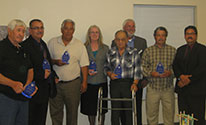 Lower Rio Grande Mutual Water Association Board of Directors
Lower Rio Grande Mutual Water Association Board of Directors
2012
Le Mesa, New Mexico
Five water systems that serve eight southern New Mexico colonias—unincorporated rural towns along the US-Mexico border — struggle with drinking water quality and access, wastewater disposal, dirt roads with no street lights, access to medical services, and substandard housing conditions. Through a regionalization effort, the communities have joined forces to form the Lower Rio Grande Public Water Works Authority (LRGPWWA). Regionalization ensures safe and reliable water services, creates local jobs through infrastructure expansion, and attracts new housing development and commercial growth. RCAC recognized the original six-member board of directors’ contribution to their community with the 2012 Yoneo Ono Award. (Pictured above from left to right:Gabriel Gutierrez, Roberto “Marty” Nieto, Johnny Holguin, Olga Morales, Karen Nichols, Ismael Borunda, Stanley Keasling, Joe Evaro and Martin Lopez.)
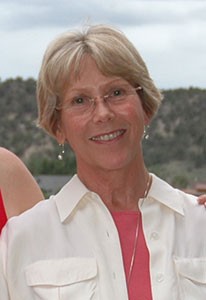 Kay Clarke Philip
Kay Clarke Philip
2010
Carbondale, Colorado
Kay Clarke Philip provided more than 20 years of voluntary assistance to low- and moderate income workers, town employees, resort workers, Latino service workers and the homeless. She has given many hours of personal time, energy and expertise to create and maintain affordable housing in the Roaring Fork Valley region. The resort area has experienced rapid growth during the last 17 years, and the cost of housing has risen in some instances more than 200 percent in a single’s year time. The region includes Carbondale, Aspen, Glenwood Springs, Basalt, Rifle and Eagle. The area struggles with escalating real estate values, staggering land costs and other complications related to its 62 percent second homeownership composition.
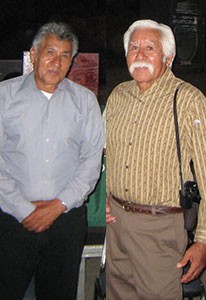 Ben and Tom Rodriguez
Ben and Tom Rodriguez
2008
San Diego, California
The Rodriguez brothers have helped to protect public health through personal training and they continue to actively seek ways to ensure that the Tribe has adequate and high quality drinking water. Their work includes creating a water board and a utility budget. In addition, during the 2007 Poomacha fires that decimated the reservation both brothers risked life and limb to protect neighboring homes and tribal facilities. Ben Rodriguez and his wife, Vonda, lost their home and personal belongings to the fire. Their work continued for weeks as water systems were repaired and tested before tribal members could return to the remaining homes.
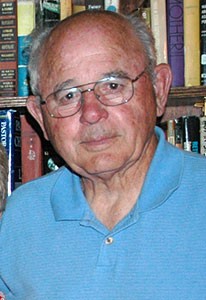 Gerald Cox
Gerald Cox
2006
Navarro, California
Gerald Cox serves as a volunteer development director for the Anderson Valley Housing Association. He has been deeply involved in housing issues affecting the residents of this rural California community, where he has lived for more than 22 years. He also serves as a member of the Anderson Valley Health Center’s board of directors.
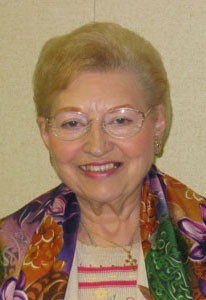 Mary Seccombe
Mary Seccombe
2005
Butte, Montana
Mary Seccombe was on the original board of directors for the Headwaters Resource Conservation and Development (RC&D) when it was formed in 1972. She has remained actively involved with Headwaters ever since, holding the office of chairman and secretary/treasurer. She serves as an urban supervisor for Mile High Conservation District and represents the district on the Headwaters Board. She was instrumental in forming the Montana RC&D Association, the Western RC&D Association and the National Association of RC&D Councils. She has served as president of all three organizations. While she served as the Montana RC&D Association chair, affordable housing was identified as an RC&D focus issue. With her guidance, RC&Ds throughout the state worked with Neighborhood Housing Services of Great Falls and began to offer FirstTime Home Buyer Education classes. This meant that first time home buyers in rural Montana could access down payment and closing cost assistance programs. The Montana HomeOwnership Network (MHN) developed from this successful partnering. Seccombe has been a very active MHN board member and presently serves as the board member and presently serves as the board vice-chair. MHN has assisted more than 2,500 Montanans obtain home ownership through education, down payment and closing cost assistance programs.
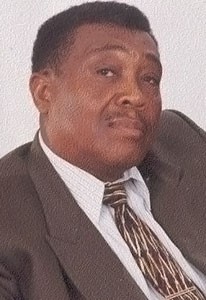 Bishop Abraham Harris, Jr.
Bishop Abraham Harris, Jr.
2004
Buckeye, Arizona
Bishop Abraham Harris, Jr., a retired county worker and active Pastor, was the driving force in relocating 40 families from a flood plain, to what is now called Hopeville. He was a major community and faith based leader throughout the entire Southwest Maricopa County. Harris helped secure funding and revitalize the Hopeville Community. Hopeville, west of Phoenix, is an African-American community of 44 homes with mostly low- to moderate-income families. Born April 15, 1937. Passed away on Feb. 16, 2004.
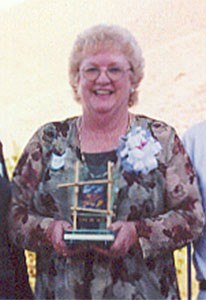 Edna Cudworth
Edna Cudworth
2003
Lockwood, Nevada
The Lockwood Mobile Home Park, home to 96 mostly low-income households, was seized by the Internal Revenue Service (IRS) in August 1999. The seizere was connected with a criminal case related to tax evasion and money laundering by the park’s owner. Park residents had been paying $90 per month with space rent, far less than the $350 that was typical in the region. Most residents live in older single-wide homes which cannot be moved, and will not be accepted at any other park. For many, the rent increase certain to come with new owners would mean displacement and loss of their older home, and for some residents, displacement would mean homelessness. With Cudworth’s leadership, the Lockwood Community Corporation (LCC) assembled a team of technical assistance providers and initiated discussions with the justice department and the IRS, once forfeiture was final. After two years of hard work, the LCC submitted its purchase offer to the IRS, Dec. 11, 2001. LCC’s offer was accepted on October 3, 2002.
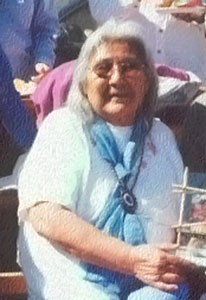 Katie John
Katie John
2002
Tok, Alaska
Katie John, is an advocate for native people’s subsistence needs. In addition, she is a counselor, tribal judge, tribal officer, village leader/mentor, council member and inspirational native role model. She is a spokesperson for the subsistence movement for Alaska Natives, serving as the plaintiff in a lawsuit to protect these rights. During her long life, she has been involved in many other volunteer activities. She also taught bead sewing, tribal traditions and languages; and she formally adopted seven children and has taken others in for a time. As a health care volunteer, she administered shots and services. She and other elders contributed to the book Mentasta Remembers, which the Mentasta Traditional Council published in 2002. The book also contains historic black and white and modern, color photos. In addition, she stars in a video, also titled Mentasta Remembers, which complements the book. Passed away on May 31, 2013, at age 97.
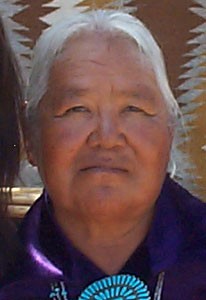 Katie Coho Henio
Katie Coho Henio
2001
Pine Hill, New Mexico
Katie Coho Henio was raised near Sierra Alto and the Chain of Volcanoes in western New Mexico. She is a traditional Navajo sheepherder and weaver and has served as leader, healer and teacher to her community. Henio has been a cultural instructor. In that role, she planned and implemented the Navajo language program in the adult education program in relation to the 1970 Indian Self Determination Act. She was a volunteer in the community parent program, where she shared her wisdom and skills as a parent with the community. She was a volunteer on community action teams, where she took part in planning strategies to better the development of education and community; and she is the author of a book called Navajo Sheepherder, which she wrote about her cultural lifestyle as a Navajo traditional sheepherder.
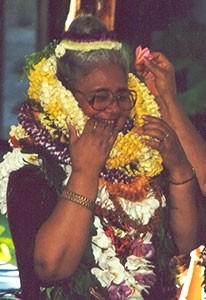 Lucille Chung
Lucille Chung
2000
Laupahoehoe, Hawaii
Lucille Chung, received the Yoneo Ono award for her endeavors for the community of Laupahoehoe, Hawaii and her work as president of the North Hilo Community Council (NHCC). During her 12 years with NHCC, she organized area residents and government agencies to find solutions to the community’s problems. Her volunteer activities contributed to many projects, including efforts to keep Laupahoehoe school and the community library open. She fought for the installation of a new boat ramp and breakwater; helped organize the renovation and completion of the Laupahoehoe fire station; supported development of the Cultural Heritage Corridor and the Laupahoehoe Train Museum; helped attract a Community Recycling Center to the area; resolve numerous public and private road issues; and organize the Laupahoehoe Point Beautification project. Chung also helped area residents create a vision for the future and develop a plan to meet community goals.
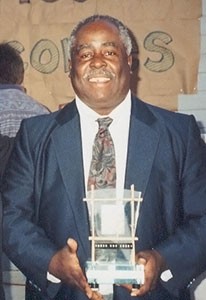 Alfred King
Alfred King
1999
Teviston, California
Alfred King’s award was based on his endeavors for his home community in Teviston, California, and for his work as a board member of Self-Help Enterprises (SHE). In his effort to improve his community, he served as a board member of the Teviston Community Services District and as president of the Teviston Betterment Association. Under his leadership, Teviston’s water system has been rehabilitated and social services in the community have been expanded. As a SHE board member, King represented SHE at national and state meetings, and represented his community at the state legislature and congress.
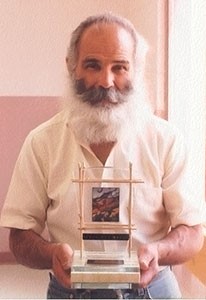 Regino Salazar
Regino Salazar
1998
Hernandez, New Mexico
Regino Salazar has been called “a kind-hearted soul, a dreamer, an educator and a philosopher.” He also is a well-known volunteer in his hometown. Salazar belongs to the Union Benefico, a bereavement support organization; actively assists neighborhood youth groups and was instrumental in helping to locate a college in his community. He also organized a community center; has been involved with numerous community projects; and helps to raise public awareness on vital issues. He spearheaded efforts to form a regional water users system that will provide water to nine communities.
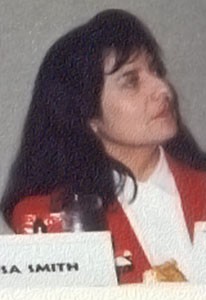 Teresa Smith
Teresa Smith
1997
Yamhill County, Oregon
When the parent agency of Yamhill Community Development Corporation (CDC) ran into severe financial troubles, Teresa Smith as board president stepped in and as a volunteer managed the agency’s affairs. According to many, she “saved” the CDC. She is involved in many other community volunteer efforts, including membership on school and hospital boards. She rides horses and volunteers for the Oregon Equestrian Trail.
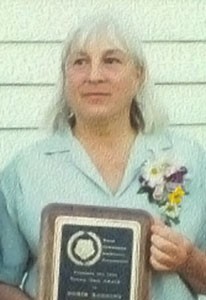 Doris Robbins
Doris Robbins
1996
Edison, Washington
Doris Robbins spearheaded efforts in her small town to develop a much needed community sewer project. The septic system failure rate in Edison jeopardized the commercial shellfish industry in nearby Samish Bay and the health of town residents. Robbins organized residents, secured funding, permits and design services. She also made sure the system was affordable to fixed-income Edison residents.
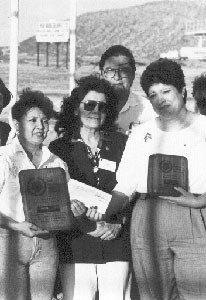 Lorenza Dorado, Maria Ortiz and America Terrazas
Lorenza Dorado, Maria Ortiz and America Terrazas
1995
Del Centro, New Mexico
Lorenzo Dorado, Maria Ortiz and America Terrazas led the development of Centro Fuerza y Unidad, a community center in a very rural colonia on the Rio Grand River. The multi-purpose facility was the first community center funded under the Community Development Block Grant Colonias Program in New Mexico. The Center was designed to house GED classes, citenship classes, a nutrition program for the elderly and clinics for immunization, blood-pressure checks and diabetes screenings.
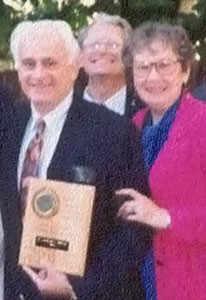 Bill and Gloria Powers
Bill and Gloria Powers
1994
Del Centro, New Mexico
Rural California Housing Corporation, a long time RCAC client, nominated Bill and Gloria Powers for lifetime volunteer activity on behalf of low-income people. Bill’s activities included political activism and work with numerous housing and rural development agencies. Gloria was involved in library and education activities, including work with a school for homeless children.
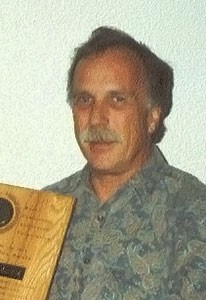 Tom Brigham
Tom Brigham
1993
Pocatello, Idaho
RCAC recognized Tom Brigham with the Yoneo Ono award, for his role in the creation of a Vietnam veterans homeless shelter and social service support program. Brigham is a decorated Vietnam veteran who contributed countless hours of work on behalf of veterans, as a Southeastern Idaho Community Action Agency (SEICAA) volunteer. He wants to resolve homelessness and unemployment among veterans, as well as to improve their education and health care.
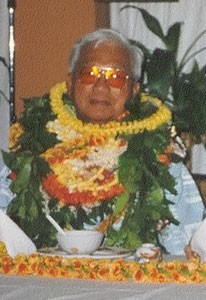 Reverend Tuck Wah Lee
Reverend Tuck Wah Lee
1992
Honolulu, Hawaii
Rev. Tuck Wah Lee has been an active community volunteer for more than 50 years. He organized and helped form the Hilo Homebuilders Support Group, comprised of Hawaiian Kupuna (elders). The Hilo Homebuilders Support Group was the first group of Native Homesteaders ever created to support housing projects since Congress passed the Hawaiian Homes Act in 1920. Additionally, Lee obtained funding for the first state-financed Self-Help Housing project for Hawaiian Homesteaders serving Native families too poor to qualify for loans. Passed away in November 2012 at age 93.
No award was given.
1991
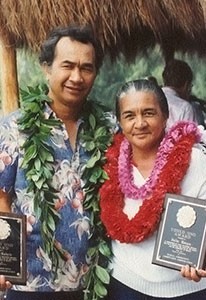 Gilbert Kahele and Julia Kaupu
Gilbert Kahele and Julia Kaupu
1989
Hawaii County, Hawaii
Gilbert Kahele and Julia Kaupu helped make it possible to build 62 self-help homes in a small Hawaiian fishing village. The residents of the village had been without permanent homes since 1962, when their village was destroyed in a lava flow. Kaupu helped organize and obtain funding. Kahele helped acquire the land leases, which cleared the way for funding by the state of Hawaii.
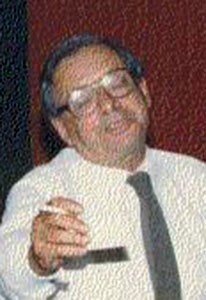 Everett Krakov
Everett Krakov
1988
San Joaquin Valley, California
Everett Krakov was one of RCAC’s incorporators and is a major activist on behalf of farm workers. He began volunteering to work on rural development in 1958 through the American Friends Service Committee’s Farm Labor Committee. Self-Help Enterprises, an RCAC client, nominated him for the Yoneo Ono award. Born 1927. Passed away Sept. 29, 2006.
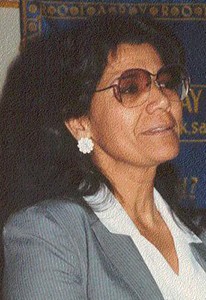 Ninfa Gutierrez
Ninfa Gutierrez
1987
Yakima Valley, Washington
Ninfa Gutierrez is a life-long volunteer on behalf of farm workers. She hosts and produces a radio show that addresses farm worker issues. She also is engaged in community and rural development activities, particularly in health and education. The radio station, whose manager was an RCAC board member, nominated her for the Yoneo Ono award.
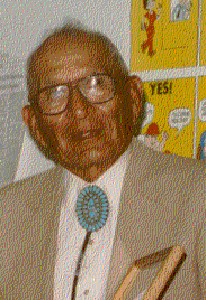 Harold Drake
Harold Drake
1986
YakiNavajo Nation, Utah
Harold Drake was born in the Navajo Mountain community and grew up to participate in community work for the Navajo Nation, including youth activities, education, health and rural development. He was a member of the Utah Navajo Development Council, which was an RCAC client. Some of his contributions to Navajo Mountain include helping to install electric lights, implement road improvements, housing, a new school, indoor plumbing, a clinic and an improved water supply. Born Dec. 25, 1922. Passed away Jan. 19. 1991.
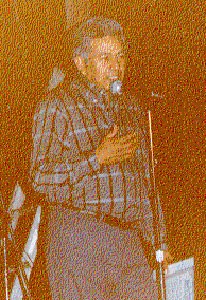 Luis Magdaleno
Luis Magdaleno
1985
Ventura County, California
Luis Magdaleno led agricultural worker families in a struggle to save their farm labor camp. When the bulldozers came, the families formed a human chain around the homes. As a result, the workers purchased the camp and formed the Cabrillo Village Cooperative. Luis was the first president. He led them through the difficult initial years when the old units were rehabilitated and new units were constructed.
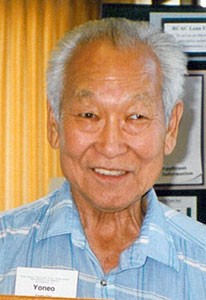 Yoneo Ono
Yoneo Ono
1984
San Joaquin Valley, California
Yoneo Ono served for more than 10 years as a volunteer for Self-Help Enterprises, currently the largest producer of Mutual Self-Help housing in the country. As a volunteer for Self-Help Enterprises, he worked tirelessly to improve the lives of San Joaquin Valley agricultural workers. He knew how to turn dreams into reality. In 1978, Ono became one of RCAC’s founding members. For his immense contribution to rural development, the RCAC board of directors presented him with an award when he retired from the board in 1984. Born 1925. Passed away 1998.
